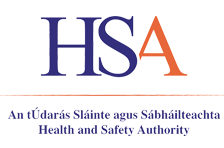What is Health Surveillance?

An important part of occupational health is how work and the work environment can impact on workers’ health. As an employer, you must make sure workers’ health is not impacted by their work. This can be achieved by having a health surveillance programme in place.
Health surveillance is putting in place systematic, regular and appropriate procedures to detect early signs of work related ill health and then acting upon the results. The aim is to identify and protect workers at increased risk and to check the long term effectiveness of measures to control risks to health.
Employers are obliged to ensure that appropriate health surveillance is made available to employees for whom a risk assessment reveals a risk to their health. Health surveillance is required by Section 22 of the Safety, Health and Welfare at Work Act 2005. Health surveillance should not be confused with health promotion and other general health checks.
How do I know if I need Health Surveillance?
On completion of your risk assessments, you will identify the hazards present in your workplace and the controls measures in place to control the risk. Where a residual risk remains and there is a likelihood it could cause harm to employee health, you will need to take further steps, one of which may be health surveillance.
In order for health surveillance to be deemed appropriate, the following criteria must be met:
- There must be an identifiable adverse health affect linked with the exposure.
- A likelihood that the adverse health effect could occur due to the work activity.
- There are low risk valid techniques to detect indications of adverse health effects due to the work activity.
Legally in Ireland health surveillance should be considered when involved in work activities that involve noise, vibration, solvents, dusts, fumes, biological agents, and other substances hazardous to health such as asbestos, lead and ionising radiation.
How do I set up a Health Surveillance Programme?
As an employer, it is important to take the time to plan your health surveillance programme to ensure it meets the needs of the business and that resources are used correctly. The following should be considered when planning your health surveillance programme:
- Identify who will be responsible for managing the health surveillance programme and ensure they are competent to fulfil their role.
- Consider who is exposed to the hazards and ensure they receive the correct health surveillance.
- Consult and communicate with employees and their representatives regarding health surveillance.
- Ensure consent is granted by employees and all information related to health surveillance is kept in line with General Data Protection Regulations (GDPR).
- Review your health surveillance results in line with your risk assessment and make the necessary changes where relevant.
